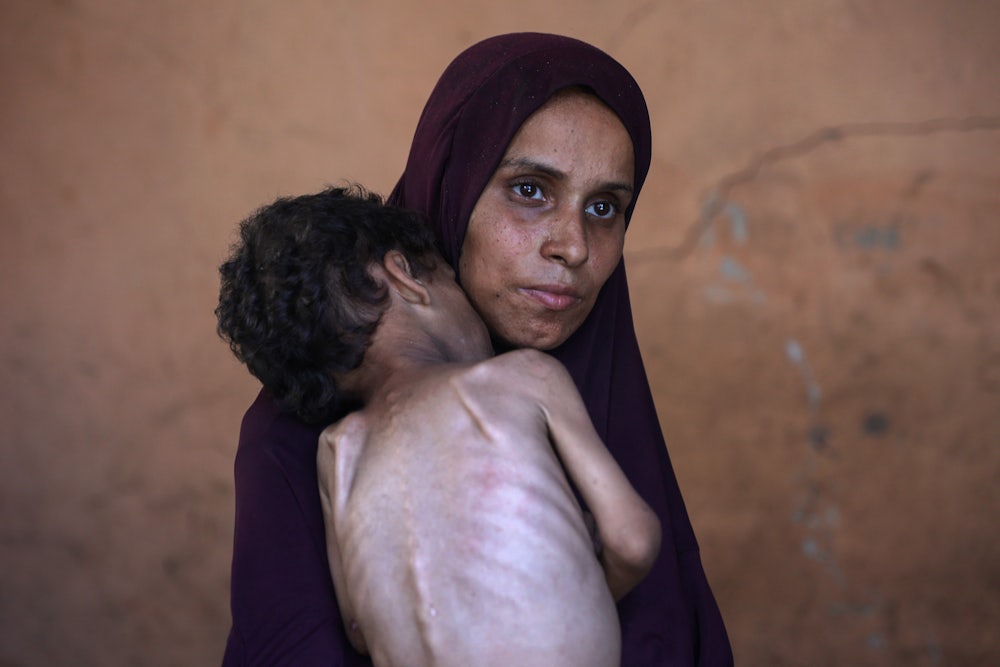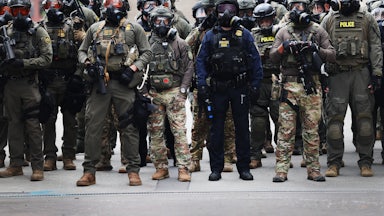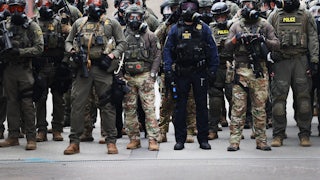Dear Mom,
It’s time for us to talk about Israel.
There was a while, half a year or so after the Hamas attack on October 7, 2023, when we weren’t talking with each other about much of anything. After months of sending dueling articles over family text threads on either the profound depravity or unfortunate necessity of Israel’s war in Gaza, it became clear that—like millions of other Jewish families across the country—we were talking past each other. So I mostly stopped engaging altogether. I just found it too bewildering, painful, and enraging to watch someone I love seemingly turn a blind eye to the indiscriminate death and destruction Israel was inflicting on Gaza.
But you’re my mom, and I’m your son, so this silence was unsustainable. Eventually, the freeze in our communications thawed. All that was required to maintain our détente was one unspoken rule: We do not talk about Israel. My therapist certainly approved.
Yet the bewilderment, pain, and anger are all still there. As Israel’s crimes in Gaza continue to escalate, and the unspeakable horrors of those crimes pierce deeper into our brains, these feelings have been getting harder to ignore. At some point, it will do lasting damage to our relationship, and I don’t want that. So we need to talk about Israel.
Specifically, I need to express what it’s doing to my heart to see you—and much of your generation—fail to grapple with Israel’s ongoing genocide in Gaza. Because that is what we’re talking about here. Gaza now has the highest number of amputee children per capita in the world, Gazan children are being purposely targeted by IDF snipers, all civilian infrastructure across the region is being systematically leveled, Gazans are being regularly massacred at Israeli-run food distribution sites, and mass starvation is underway. This isn’t a war Israel is prosecuting, and hasn’t been for a long time, if it ever was. What Israel is pursuing, in the words of former Israeli Prime Minister Ehud Olmert, is “indiscriminate, limitless, cruel and criminal killing of civilians,” not from “some disproportionate outburst by some soldiers in some unit” but through “government policy—knowingly, evilly, irresponsibly dictated.”
And while campaigns of “indiscriminate, limitless, cruel and criminal killing of civilians” do not need to constitute genocide to morally necessitate opposition, there is a growing consensus—among those who know far more than we do about what is really happening in Gaza, and those who know far more than we do about genocide—that what Israel is doing in Gaza is, in fact, genocide. That is the conclusion of human rights organizations that have been operating on the ground there, from respected Israeli organizations like B’Tselem and Physicians for Human Rights Israel to international organizations like Amnesty International, Doctors Without Borders, and Human Rights Watch. And it is the conclusion of genocide experts like the president of the International Association of Genocide Scholars and the editor in chief of the Journal of Genocide Research.
As Raz Segal, an Israeli professor of Holocaust and genocide studies at Stockton University, put it, “Can I name someone whose work I respect who does not think it is genocide? No, there is no counterargument that takes into account all the evidence.” Or as Omer Bartov, another Israeli professor of Holocaust and genocide studies at Brown University, wrote recently in The New York Times, “My inescapable conclusion has become that Israel is committing genocide against the Palestinian people. Having grown up in a Zionist home, lived the first half of my life in Israel, served in the I.D.F. as a soldier and officer and spent most of my career researching and writing on war crimes and the Holocaust, this was a painful conclusion to reach, and one that I resisted as long as I could. But I have been teaching classes on genocide for a quarter of a century. I can recognize one when I see one.”
“But what about the hostages?” you ask.
Yes, Hamas still holds 50 hostages captive in Gaza. But a moral, rational person’s evaluation of Israel’s atrocities should not be impacted by that reality because these are completely unrelated facts. They are unrelated in function, given that Prime Minister Benjamin Netanyahu’s administration has proven—again and again, beyond any shadow of a doubt, as articulated in the clearest possible terms by the hostages’ own families—that the government is not interested in freeing the hostages, and thus is not conducting its terror campaigns in Gaza in order to do so. Indeed, the man Netanyahu recently tried to install as the head of Israel’s domestic intelligence agency said, “I oppose hostage deals. This is a forever war.”
And they are unrelated in scale. Yes, it is tragic that 50 humans are being held hostage by Hamas. But that’s less than half the number of humans that Israel gunned down while they were seeking food aid just this past week. Yes, it is painful to imagine the fear and hunger being experienced right now by those 50 hostages. But Israel is essentially condemning the entire population of Gaza to comparable degrees of fear and hunger. If anything, the hunger Israel is inflicting on Gaza’s two million human beings is worse: I have not heard of any hostages starving to death, which is what Israel has already done to hundreds of Gazans and is in the process of doing to tens or even hundreds of thousands more.
This genocide is an all-of-government effort, and polling shows it is largely backed by Israelis. A recent Haaretz survey found that 82 percent of Jewish Israelis support the expulsion of residents of the Gaza Strip to other countries, with 54 percent indicating they were “very” supportive; 56 percent of them even supported the forced expulsion of Arab citizens of Israel to other countries; and 47 percent of Jewish Israelis said they agreed that the IDF, “when conquering an enemy city, should act in a manner similar to the way the Israelites acted when they conquered Jericho under the leadership of Joshua, namely, to kill all its inhabitants.”
Yes, there are Israelis—including our Israeli family members—who strenuously oppose what is being done in Gaza, but it is clear that they represent a disturbingly small minority. The reality is that Israeli society has, to a concerningly widespread degree, been radicalized, such that it is beginning to display characteristics of the societies that have facilitated genocides in the past—including, to just come right out and say it, the society that committed genocide against our people. And this gets to the real crux of my letter.
Growing up, every aspect of my Jewish identity was connected to the Holocaust: through stories we were told by Grandpa about his childhood in Germany; the trip we took with him to Treblinka and Auschwitz; books we read like Maus and The Diary of Anne Frank; movies we watched like Schindler’s List and Life Is Beautiful; songs we sang like “Ani Ma’amin” and “I Still Believe”; visits we made to the Holocaust Museum and Yad Vashem; and a million other everyday comments at Sunday School, Hebrew School, Passover, family get-togethers, and more. In so many ways, it was instilled in me that there’s nothing worse than supporting the perpetrators of genocide, nothing more cowardly than staying silent in the face of genocide, and nothing more virtuous than standing up against genocide.
And I’m so grateful for this! It’s a credit to you and our family and our Jewish community that “Never Again” was the morality that I was taught as a child and that has influenced so many of my choices as an adult. It’s why as a state legislator I worked to pass—alongside an Armenian American colleague—a Holocaust and genocide education requirement for my state’s public schools. It’s why I’ve fought attempts to turn away refugees that reminded me of America’s failure to accept Jewish refugees during the 1930s. It’s why I spent an evening in jail for engaging in civil disobedience at an ICE detention facility that had been operating much like a concentration camp. This has been a through line not just in my career but in the activism and worldview of so many Jewish Americans who were raised right by our parents.
So when we see those same parents, the people we love most in the world, fail in this most elemental task—to clearly and unequivocally and loudly oppose a genocide (or even, if you still can’t accept that terminology, an “indiscriminate, limitless, cruel and criminal killing of civilians” that strongly rhymes with genocide), let alone one being done in our name—that is not something we can agree to disagree about. When I look at my two sons, I can’t not see the children of Gaza—scared, orphaned, disfigured, and now literally starving to death—and feel profound shame that I have not done more over these past two years to stand against these crimes. Mom, you are a beautifully kind and empathetic person in so many ways. And yet, I don’t believe that when you look at your grandsons, you have ever pictured them similarly.
But I need you to try. I need you to step out of your echo chamber for a moment. I need you to at least consider the possibility that what Israel is doing to Gaza is, in practice if not scale, what was done to our ancestors. In short, I need you to be the parent I have always looked up to. The role model who taught me right from wrong. The mother who taught me to say “Never Again.”
Love,
Aaron






